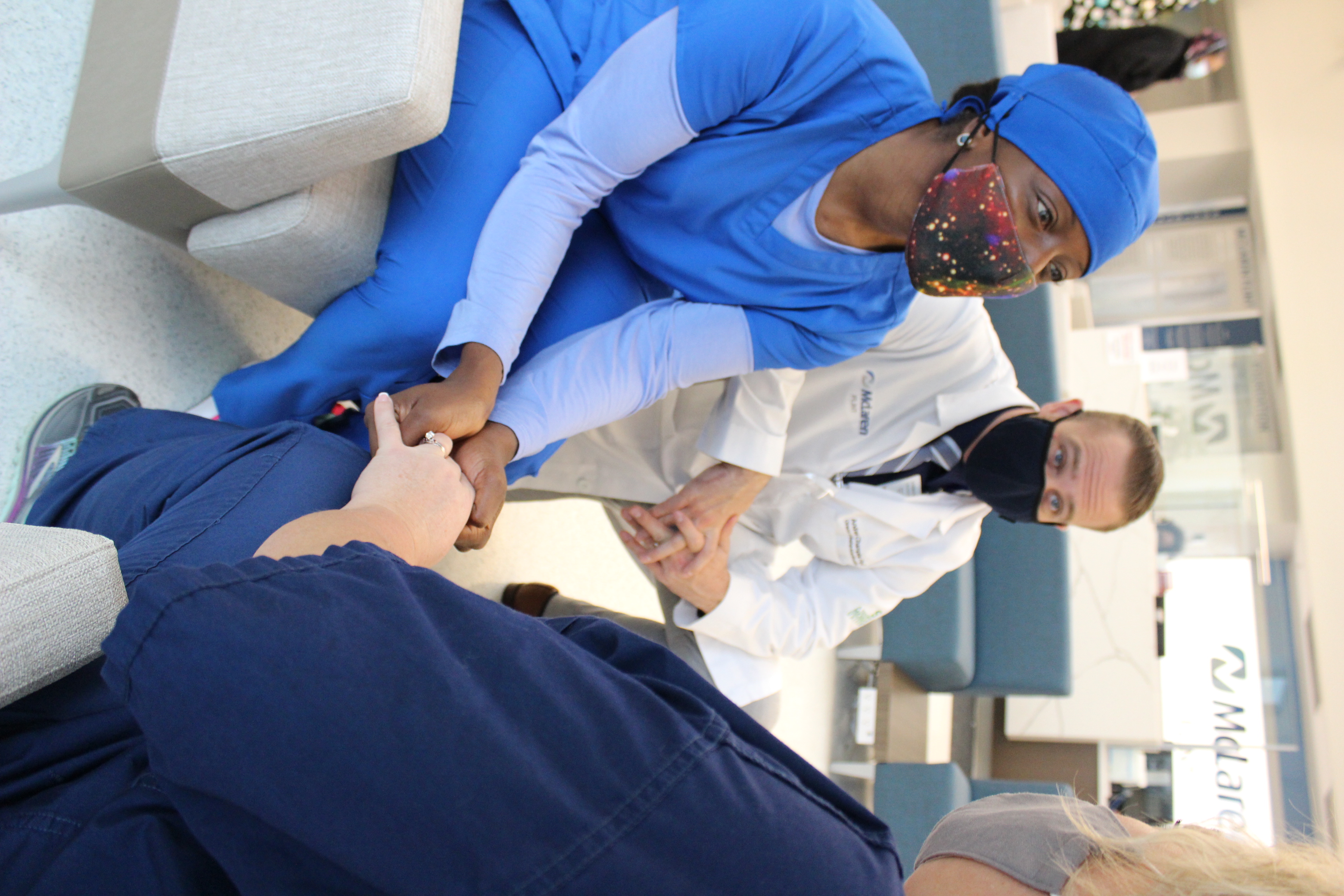Author: McLaren Flint Hospital

The past two years have been difficult for many of us. In fact, the United Nations is currently tracking the COVID-19 pandemic and its severe impact on the mental health and well-being of people around the world. Their data shows while many individuals have adapted, others have not been able to pivot so easily.
According to the Centers for Disease Control and Prevention (CDC), the pandemic has drastically impacted the number of people suffering from anxiety and depression. CDC numbers show that from August 2020 to February 2021, the percentage of adults with recent symptoms of an anxiety or a depressive disorder increased from 36.4% to 41.5%, and the percentage of those reporting unmet mental health care needs increased from 9.2% to 11.7%.
The Anxiety and Depression Association of America reports nearly 450 million people worldwide are currently living with a mental illness, yet nearly two-thirds of people with a known mental illness never seek treatment.
“If you have concerns about someone or if you experience worsening mental health symptoms, ask for help when you need it,” said Nicole Franklin, PSY.D., ABPP one of the academic program directors for McLaren Flint’s Behavioral Health services. “It’s time that we see mental illness as a family of health conditions that deserve treatment and support just like any other physical health condition and change starts with you.”
Her recommendation: Build up your support network and strengthen your healthy relationships.
“You must be purposeful and make mental wellness a priority,” added Dr. Franklin.
Check-in with your emotional well-being and the emotional well-being of others by evaluating these four red flags of emotional distress:
- Increase in agitation or sadness.
- Withdrawal from social activities once enjoyed.
- Decline in personal care.
- Increase in hopelessness.
Someone may exhibit one or more of the red flags listed above. If you see this change in behavior in someone you love (including yourself), reach out, connect, and offer to help.
“Mental illness is one of the most common health conditions in the U.S., thus there’s a high probability that each one of us will be touched by it in our lifetime,” said Dr. Franklin. “Whether you are aware of it or not, it’s likely that someone in your life – yourself, your child, your parent, your sibling, your friend, your partner – could be dealing with a mental health disorder.”
The good news is that these days, anyone affected by mental illness can find help. If you are in crisis, please use one of the following resources:
National Suicide Prevention Hotline
Call 1-800-273-TALK (8255) or Text HELLO to 741741 (Free. Available 24 hours. Languages: English and Española.)
SAMHSA’s Disaster Distress Helpline
Call: 1-800-985-5990 (Available 24 hours. Languages: English and Española.)
SMS: Text TalkWithUs to 66746 or SMS (Española): “Hablanos” al 66746
TTY for deaf/hearing loss: 1-800-846-8517
Veterans Crisis Line
Call: 1-800-273-8255 and Press 1 to talk to someone or Text a message to 838255 to start a confidential chat (Free. Available 24 hours. Languages: English)
TYY for deaf/hearing loss: 800-799-4889
Dial 911 in an emergency.
Dr. Franklin shared this final message, “Wherever you seek support this May, I encourage you to prioritize your mental health. Relax, learn ways to reduce stress, and practice what works for you: meditate, run, knit, dance, sing, write, or (fill in the blank). I hope this month and beyond brings all of us hope, healing, and understanding.”
To learn about outpatient mental health services offered by McLaren Flint, visit this link.